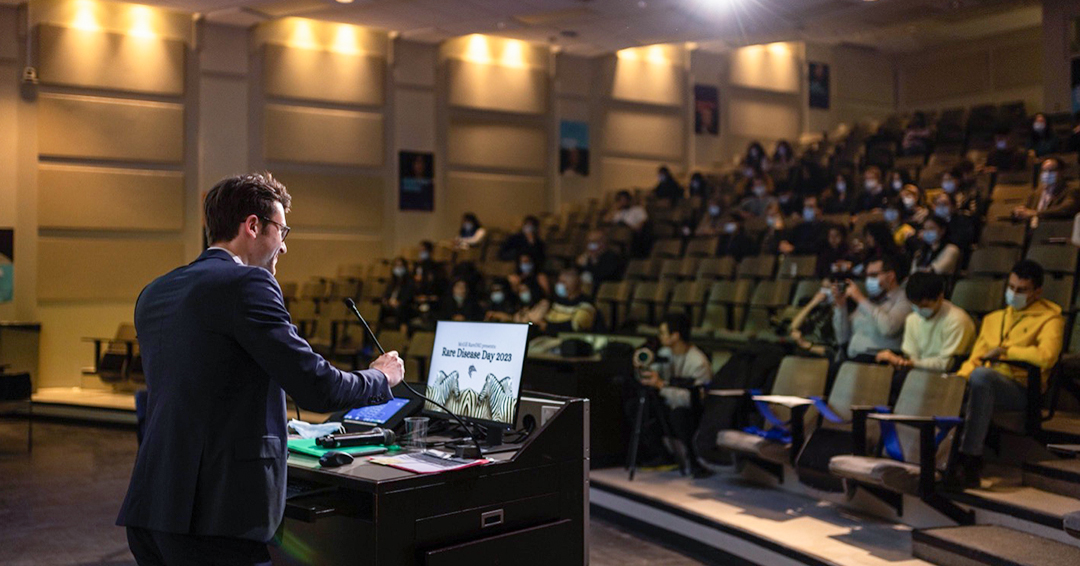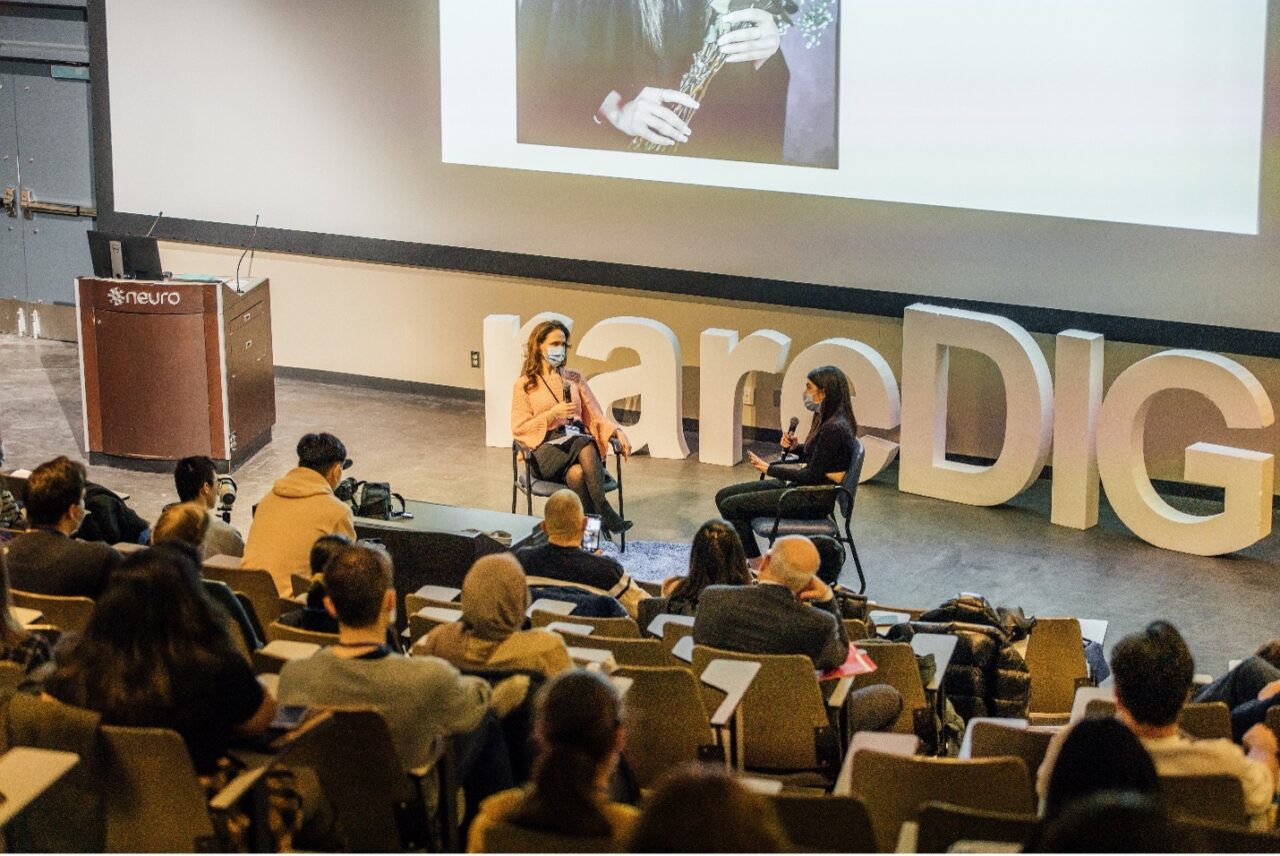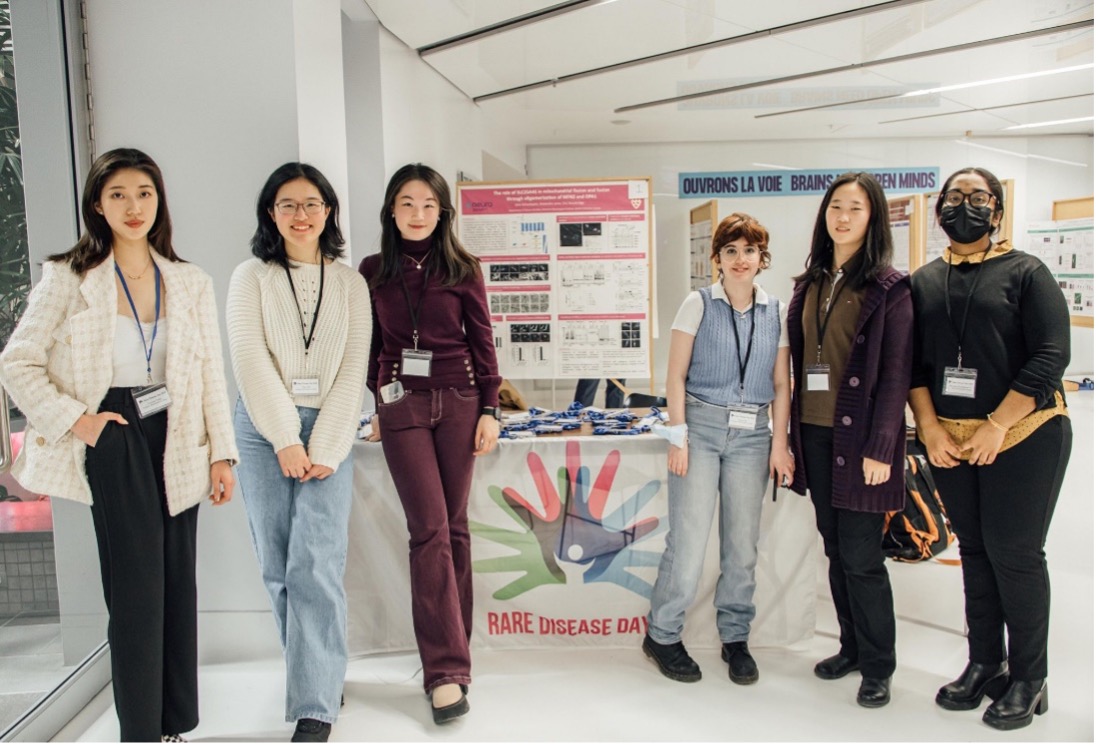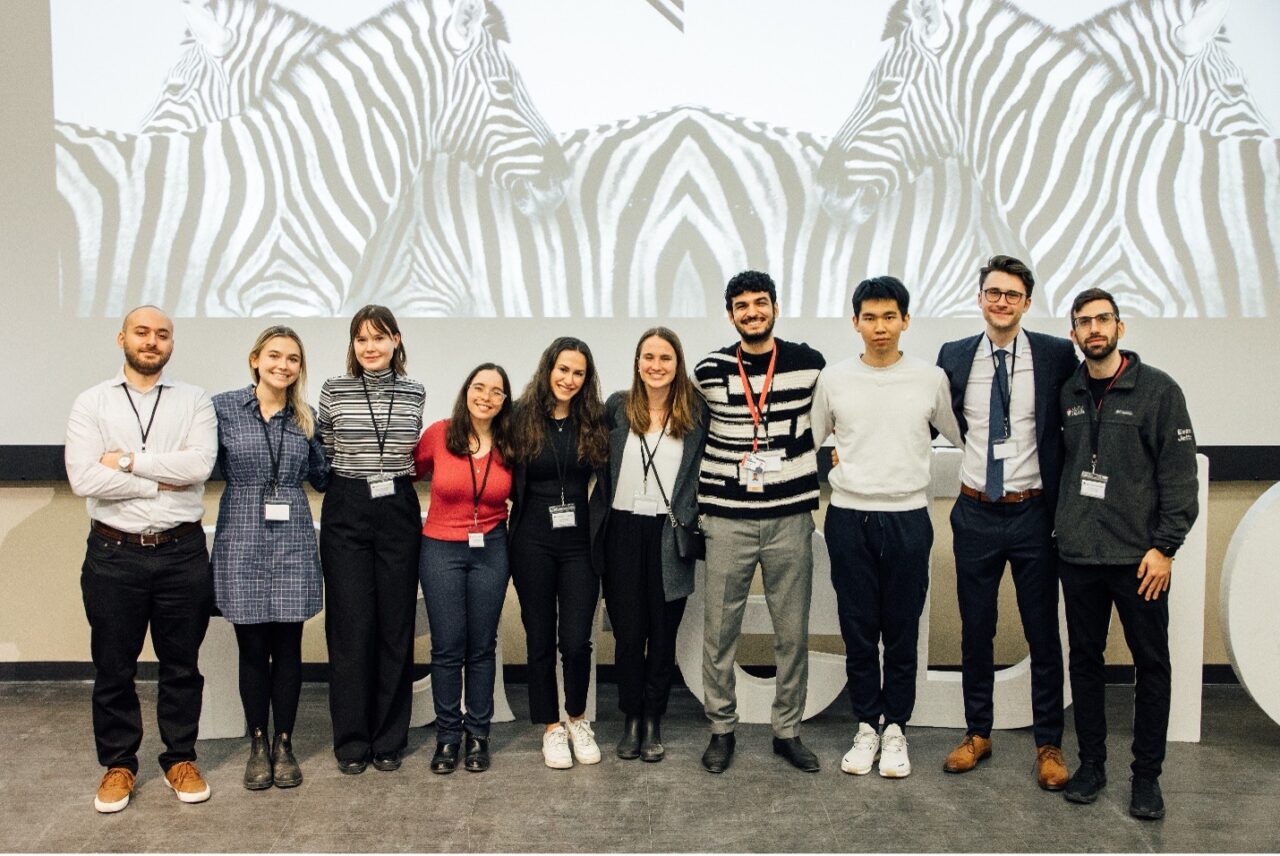
On March 16, 2023, the Rare Disease Interest Group (rareDIG), a medical student-run group at McGill, honored Rare Disease Day by hosting students, researchers, and clinicians at The Neuro for a series of guest speakers and rare disease research poster presentations by McGill students.
The event began with an opening introduction by the group’s current president, second-year medical student Gregory Mikerov, who passionately shared the importance of rare disease advocacy and education at the medical student level.
The first talk of the evening was delivered by Will’s Power, a foundation started by Jen and Kevin, parents of Will, a courageous young boy with a rare lymphatic disease known as a Generalized Lymphatic Anomaly (GLA). The family shared their lengthy journey facing the challenges and limitations of living with a rare disease. The talk delivered an important message in providing medical teams an approach to caring for patients with rare diseases.
Next was a presentation by Laura Palma, a medical geneticist at McGill who shared some of the challenges and barriers faced when diagnosing rare diseases, as well as the importance of emphasizing an approach to rare genetic diseases in medical training. This was followed by a real-life example of an exceptional and resilient patient Claudia Martino, who has experienced firsthand these challenges, and who was there in-person for a question and answer session with Laura and members of the audience.
Claudia offered her powerful and thought-provoking perspective through the diagnostic odyssey she had faced for several years until being diagnosed with Constitutional mismatch repair deficiency (CMMRD) syndrome. Following several misdiagnoses and difficulties advocating for herself and her disease, she offered us a firsthand account of the importance of rare disease awareness, empathy and compassion towards patients as they struggle not to be defined by heuristics in clinical reasoning.

The final guest speaker was a genetics and neuroscience researcher and Associate Professor at McGill, Benoit Gentil, PhD. During his talk, Prof. Gentil offered insights on the bridge from bench to bedside in discovering and beginning to investigate the breadth and depth of ultra-rare forms of Charcot-Marie-Tooth disease. The talk highlighted the amount of progress which can be made over the span of a generation in better understanding the origins of rare diseases and offered motivation for young and aspiring scientists to pursue rare disease research.
Finally, the event wrapped up with a talk from Alex Chapleau, the head of rareDIG’s research branch and McGill PhD student who has been a member of rareDIG since its origins and has expanded the emphasis on rare disease research. For the first time this year, rareDIG hosted a poster session highlighting the rare disease research that students at McGill have completed. More than 20 posters were presented at the event and were judged and presented with awards based on the quality of their research. In the future, the rareDIG group seeks to conduct further fundraising to offer students research grants to complete projects in rare diseases, with the aim of encouraging and increasing representation of rare disease research in the medical sciences.

About rareDIG
Rare diseases are defined as those affecting fewer than one in 2,000 people. Unlike more common illnesses, patients and families affected by rare diseases face challenges in finding timely diagnoses and appropriate treatments. This is due to a combination of limitations to rare disease research funding, targeted pharmacological developments and, importantly, limited exposure to patients affected by rare disease in medical school.
Medical students are often taught the heuristic, “If you hear hoof-beats, think of horses, not zebras.” A goal of rareDIG has been to highlight that in fact, sometimes heuristics can be harmful, and that medical students should be comfortable to try to differentiate a zebra from a horse.
In Fall 2017, a group of medical students at McGill University started rareDIG, the first medical student-run rare disease advocacy group in Canada. The aim of the group has been to motivate medical students to learn, understand and better care for patients and families affected by a rare disease. The group also strives to encourage medical students to adopt attitudes that will benefit patients with rare diseases and provide a platform that promotes discussion and action within the continuously expanding community. Developing insight into the challenges patients with rare diseases face will inform the advocacy efforts of our colleagues and encourage the creation of public policy that can reduce inequities in care.
RareDIG offers various educational initiatives, including guest lectures, symposia and workshops, to educate students and the wider community about rare diseases. The organization also organizes the Rare Disease Day event annually in collaboration with patient groups and industry partners. Last year, the event was held online in partnership with various rareDIG chapters which have started to emerge at other medical schools, such as Georgetown, Perelman and Johns Hopkins school of medicine in the United States. The group continues to expand and is helping to develop chapters across North America modelled after the original group in McGill.
The organization also prioritizes research initiatives that foster collaboration between students, researchers and clinicians. RareDIG members have participated in various research projects, including gene sequencing, disease modeling and clinical trial development. Students have the opportunity to gain hands-on research experience and contribute to advancing the understanding and treatment of rare diseases.
Overall, RareDIG plays a critical role in advocating for and supporting individuals affected by rare diseases. The organization provides a unique platform for students to engage in multidisciplinary collaborations and make a tangible impact in the rare disease community. With the continued growth and success of RareDIG, there is significant potential for advancing research, improving diagnosis and treatment and ultimately improving the quality of life for individuals with rare diseases.

